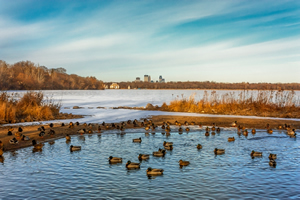| The pendulum on the definition of the “Waters of the United States”, or WOTUS, appears to be swinging in yet another direction. A federal lawsuit filed by 20 entities aims to prevent the Navigable Waters Protection Act from going into effect later this month. California, Connecticut, Illinois, Maine, Maryland, Massachusetts, Michigan, New Jersey, New Mexico, New York, North Carolina and the North Carolina Department of Environmental Quality, Oregon, Rhode Island, Vermont, Washington, Wisconsin, Virginia, the District of Columbia, and the City of New York object to the updated regulation that significantly narrows the definition of which bodies of water are federally regulated. The suit echoes several other lawsuits brought forth by environmental groups that claim the Navigable Waters Protection Act violates the Clean Water Act (CWA) and the Administrative Procedure Act. On April 21, the U.S. Environmental Protection Agency (USEPA) and U.S. Army Corps of Engineers (USACE) published the final rule defining the scope of waters that are federally regulated under the CWA on the Federal Register. The Navigable Water Protection Act is scheduled to go into effect on June 22, 2020. The Navigable Waters Protection Rule includes a revised definition for WOTUS to protect the nation’s navigable waters from pollution. The revised definition replaces the 2015 Clean Water Rule proposed under the Obama Administration that previously sparked lawsuits and injunctions, preventing it from ever going into effect. The Navigable Waters Protection Rule identifies four categories of waters that are Federally regulated under the CWA: *Territorial seas and traditional navigable waters, like the Atlantic Ocean and the Mississippi River *Perennial and intermittent tributaries *Certain lakes, ponds, and impoundments *Wetlands that are adjacent to jurisdictional waters The following waters are not subject to Federal control under the CWA: *Water features that only contain water in direct response to rainfall *Groundwater *Many ditches, including most farm and roadside ditches *Previously converted cropland *Farm and stock watering ponds *Waste treatment systems The USEPA says the Navigable Waters Protection Rule respects the primary role of States and Tribes in managing their own land and water resources. |
Lawsuits Attempt to Block New Definition of WOTUS

